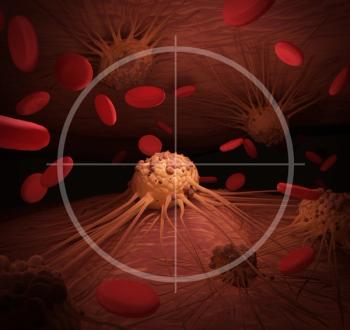
The interim analysis showed positive response and safety data in adult patients with relapsed or refractory CLL or SLL treated with zanubrutinib compared with those receiving ibrutinib.

Your AI-Trained Oncology Knowledge Connection!


The interim analysis showed positive response and safety data in adult patients with relapsed or refractory CLL or SLL treated with zanubrutinib compared with those receiving ibrutinib.
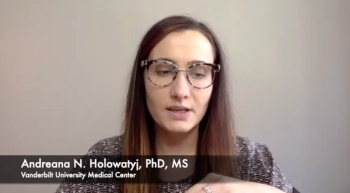
The lead author spoke about the rising incidence of early-onset colorectal cancer, which was the focal point of her research presented at the American Association for Cancer Research Annual Meeting 2021.

The phase 2 trial investigated the toxic effects, PSA responses, and resulting quality of life measures from SBRT and SDRT, finding that the latter has the potential to be a feasible alternative treatment option for prostate cancer.

Based on results of the recently reported phase 3 CheckMate 274 trial, the FDA has granted priority review designation to nivolumab for the adjuvant treatment of high-risk muscle-invasive bladder cancer.

By a close decision, the FDA’s Oncologic Drugs Advisory Committee voted against upholding the accelerated approval of nivolumab monotherapy to treat patients with hepatocellular carcinoma following sorafenib.
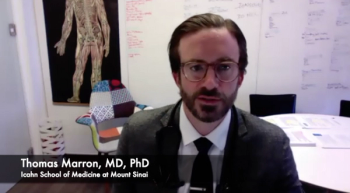
Marron spoke about the value that neoantigen vaccines can provide by studying T-cell responses and the characteristics of lymphoid response to antigens.

CancerNetwork® spoke with Francesco Ravera, MD, PhD, during the American Association for Cancer Research Annual Meeting 2021 to discuss a study that looked at cell-free DNA assessment compared with traditional MRI for determining pathological complete response in patients with locally advanced breast cancer.

Data examining thermal ablation for women with a total of 119 metastatic gynecologic tumors found the therapy was safe and effective in the local control of these tumors.

Chemotherapy-induced myelosuppression was reduced when trilaciclib was used before chemotherapy for patients with extensive-stage small cell lung cancer versus placebo.

Accelerated approval for atezolizumab in the treatment of patients with locally advanced or metastatic urothelial carcinoma who are not eligible for certain chemotherapy regimens was maintained by an FDA committee vote.

Better adherence to oral chemotherapy was seen in patients who used a smartphone mobile app, according to a presentation at the Oncology Nursing Society’s 46th Annual Congress.

CancerNetwork® sat down with Health and Wellness expert Sonia Jhas to discuss best practices for avoiding unhealthy eating habits on a demanding schedule.

Based on response efficacy in a phase 1/2 trial, the FDA granted the selective oral tyrosine kinase inhibitor mobocertinib priority review for patients with pretreated metastatic non–small cell lung cancer harboring insertion mutations in EGFR exon 20.

The FDA’s Oncologic Drugs Advisory Committee voted 7 to 2 in favor of atezolizumab plus nab-paclitaxel maintaining its accelerated approval to treat patients with unresectable, locally advanced or metastatic triple-negative breast cancer (TNBC) whose tumors express PD-L1.
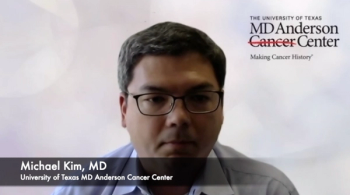
Kim discussed the need for further CREB inhibitor combinations to target collateral pathways and improve patient outcomes.

CancerNetwork’s latest podcast episode dissects and article from the journal ONCOLOGY® focusing on 4 PARP inhibitors investigated for the treatment of advanced prostate cancer.
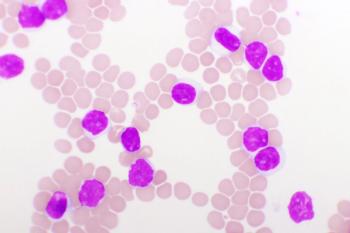
A phase 2 trial found that acalabrutinib may present a potential therapeutic option for patients with chronic lymphocytic leukemia who discontinued ibrutinib treatment.

Low-grade, manageable treatment-emergent adverse effects and low rates of discontinuation were associated with the RET inhibitor selpercatinib as therapy for patients with RET-altered advanced solid tumors who were treated on the LIBRETTO-001 trial.

Young women with gastrointestinal cancers who received the FOLFIRI or FOLFOX chemotherapy regimens experienced a benefit in terms of reduced nausea and vomiting with the combination of aprepitant plus palonosetron and dexamethasone.
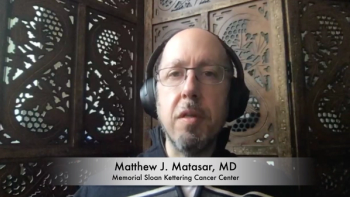
The lymphoma expert discussed how adding copanlisib to rituximab improved progression-free survival, while demonstrating a manageable safety profile in patients with relapsed indolent non-Hodgkin lymphoma.

Look back at some of the important news and notes from last week in the world of oncology, featuring articles from the latest issue of the Journal ONCOLOGY®.
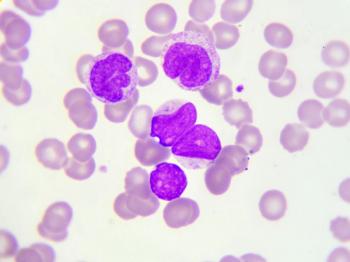
Data from Nature Communications detailed MutaSeq, a new method for distinguishing between cancer stem cells, mature stem cells, and healthy stem cells in acute myeloid leukemia.
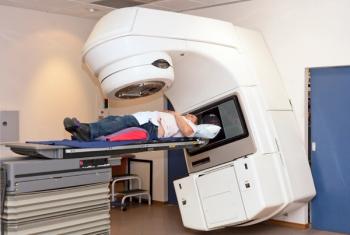
A clinical trial examining the safety of stereotactic body radiotherapy for patients with oligometastases indicated that the modality was safe for patients with multiple metastatic sites.

Combination therapy with tislelizumab/chemotherapy improved progression-free survival and the overall response rate for patients with squamous non–small cell lung cancer when compared with chemotherapy alone.
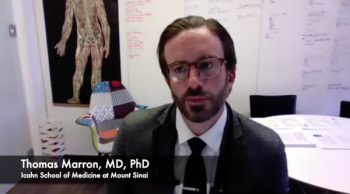
Marron discussed the next steps to a trial of PGV-001, specifically centered around determining the immunogenicity of vaccinated patients against their antigens.

The study concluded that immune-related adverse events were more common than previously anticipated following adjuvant anti–PD-1 therapy and persisted with prolonged follow-up.

ONCOLOGY reviews key updates in the treatment of renal cell carcinoma to come out of the Genitourinary Cancers Symposium.

During an After Hours segment of Medical World News®, Nina Shah, MD, spoke about her new passion for Peloton, the convenience of working out from home, and the importance of getting out of the office for personal health and wellness.

Specific resources needed for survivors of cancer to effectively cope during the first year after treatment were limited due to the COVID-19 pandemic, causing survivors to self-cope with known mechanisms.

A new Chemotherapy Education Policy at an NCCN-designated oncology center was received well by nursing and pharmacy staff, yet failed to meet its goals of better-informing patients about their therapy prior to their first dose.